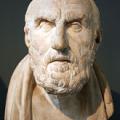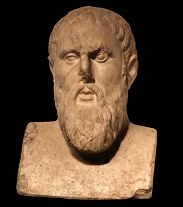60 - Walking on Eggshells: the Stoics on Logic
Peter arrives at the most influential of the Hellenistic schools, the Stoics, focusing on the early school from Zeno to Chrysippus, and on Stoic innovations in logic.
Themes:
• S. Bobzein, “Stoic Syllogistic,” Oxford Studies in Ancient Philosophy 14 (1996), 133-92.
• J. Brunschwig (ed.), Les Stoïciens et leur logique (Paris: 1978).
• J. Brunschwig, Papers in Hellenistic Philosophy (Cambridge: 1994).
• K. Döring and T. Ebert (eds), Dialektiker und Stoiker. Zur Logik der Stoa und ihrer Vorläufer (Stuttgart: 1993).
• M. Frede, “Stoic vs. Aristotelian Logic” in Frede, Essays in Ancient Philosophy (Oxford: 1987), 99-124.
• K. Ierodiakonou, “The Stoic Division of Philosophy,” Phronesis 38 (1993), 57-74.
Stanford Encyclopedia: Stoicism and the Dialectical School







Comments
Xeno's Christmas calendar
A timely post. I thought you might enjoy this: Xeno's Christmas calendar...
http://imgs.xkcd.com/comics/advent_calendar.png
In reply to Xeno's Christmas calendar by DavidS
Wrong Zeno.
The one in the cartoon is Zeno of Elea, who lived a century earlier. He was discussed iun Hop episode 8.
Stoic Categories?
Aristotle had his categories and the devotees of Plato loved to critique them. Plato himself seems to have one set in the Sophist and another in the Philebus. Does any Stoic have a another, rival set of categories? (If one did, I would guess it would be Chrysipus.) If not, then is there a reason that a Stoic wouldn't need categories of the sort Aristotle and Plato had?
In reply to Stoic Categories? by John Anders
Stoic categories
Yes, they did, sort of. They have a classification of things with "something" as the highest class, divided into incorporeal and corporeal; the former subdivided into lekta, void, place and time, the latter into different kinds of body (e.g. body that is qualified in a certain way). This is all laid out in sectiom 27 of the Long and Sedley volume on Hellenistic philosophy.
Having said that this is more of an ontological classification and not obviously doing the same work as Plato's greatest kinds or Aristotle's categories. But I think it's the closest they have to what you mean.
Universal quantification and implication
Is there really any difference between saying "all men are mortal", and, "if it is a man, then it is mortal"? I'm struggling to get a handle on this. They seem to mean the same thing.
In reply to Universal quantification and implication by Denziloe
Any difference?
Yes I would say so but it is subtle. For one thing the logical structure is just different. This makes little difference in the case you mention, but in other cases it is very important. Basically this is because in an if... then structure you can substitute whole propositions like (classic Stoic example) "if it is day, then it is light." That can't so easily be translated into the sort of predicative sentence in your example (all men are mortal). Aristotle's logic works exclusively with predications so would have a hard time making use of or even acknowledging the identical logical structure of the two hypothetical claims with If... Then structure.
Also one might think that the first sentence in your example implies that there are in fact some men (Aristotle thought this in fact) whereas the if... then version looks more noncommittal regarding existence, maybe.
In reply to Any difference? by Peter Adamson
Doesn't that mean the same
Doesn't that mean the same thing as "all days are light"? This equivalence seems sketchier, but I'm still struggling to explain why. It also seems possible to express complex propositions in a quantified way... for instance, "if it divides by 2 and divides by 5, then it divides by 10" looks like it can be expressed as "all numbers which are multiples of 2 and 5 are multiples of 10".
Also... regardless of translating an "if, then" into a "for all", it seems that a Stoic can translate any "for all" into an "if, then"... am I interpreting the episode right? So... doesn't this mean that Stoic logic encompasses all Aristotelian expressions? Which would seem to imply that Stoic logic would inherit any of the problems that Aristotle's logic was perceived to have. Or is something materially changed by the translation? In this case, could you explain in the specific example of men and mortals what the different meanings are and why the Stoic meaning is more amenable to them?
With respects to the existence question, I'll take "all gods are angry" as an example. In Stoic logic this would become, "if it is a god, then it is angry". But if there are no gods, doesn't this also land the Stoics in troubling territory, because it's an "if, then" with a false antecedent? I'm guessing this is the reason for your "maybe".
In reply to Doesn't that mean the same by Denziloe
Stoic vs Aristotelian logic
You're right that an "if...then" statement could also be taken to have existential implications, but I was thinking it is more open (because if I say "if something is a god..." that doesn't, on the face of it, look like I have thereby claimed there are any gods, whereas if I say "all gods are..." then it looks like maybe I have).
But the more crucial question is the first one you ask. My thought was that even if "if something is a man, it is mortal" cashes out as having the same truth conditions as "all men are mortal," it still has a different logical structure. On the Stoic view, but not the Aristotelian one, it has the same structure as any claim linking two propositions hypothetically, and these propositions don't need to be predications (for instance: "if Hiawatha exists, then at least one thing exists"; I also think "if it is day it is light" is a link between two non-predicative propositions, since "light" is not being predicated of "day" as far as I can tell). That gives you a completely different basis for doing logic, because predications become only one kind of proposition that can be put into different argument schemes. In this respect Stoic logic is closer to modern logic which doesn't restrict its attention to predications.
By the way what you are trying to do, in translating other arguments and propositions into purely predicative claims, is what Aristotelian commentators like Alexander did in response to Stoic logic: they attempted to show that you can rework all the Stoic style arguments as Aristotelian predicative arguments. But I think this is universally thought to be an unsuccessful project.
In reply to Stoic vs Aristotelian logic by Peter Adamson
Stoic logic
Two questions:
1) When you say that "light" is not being predicated of "day", do you mean that is not "explicitly" predicated, i.e., what is being said is that it being light is the consequent of it being day, not that day IS light, strictly speaking? If so, doesn't this imply that day is indeed light?
and
2) When Aritotle says "All gods..." (to use your example, although I know Aristotle believed in some sort of god), is he really assuming that gods exists? Does he really assume that all terms are non-empty? I'm not saying that Aristotle can't be mistaken, but it's hard for me to believe that he believed in the existence of, say, chimeras.
In reply to Stoic logic by Alex
Stoic logic
1) No, what I meant is that predication is not relevant at all. We are not thinking about how/whether the predicate "light" attaches to the subject "day" but how two complete propositions relate ("it is daytime", "there is light"). Maybe it also makes sense to say that day "is" in some sense light - though I doubt that - but if so it is not what the Stoics mean.
2) You make a good point here: probably Aristotle would just have to say that there are no true predications/propositions about chimeras, strange though that may seem to us.
consequence of "if...then"
To accept the Stoic understanding of the meaning of "if ... then" would make the development of mathematical logic impossible. As a mathematician I find this enough to show that the Stoics were in error at that point. Mathematical logic is of central importance to all modern mathematics and where would we be without math? .
In reply to consequence of "if...then" by Carroll Boswell
Hypotheticals
Can you spell out what the problem would be? I would have thought that alternative constructions for "if...then" should just give rise to different formal logics. (For example, usually it's taken that anything can be inferred from a contradiction but you could construct a logical system where this is not the case.) I think there is also an interesting issue here about which discipline has the right to say "ok, this is how correct reasoning works." Intuitively, my feeling is that metaphysics, psychology, etc should have something to say here, and that the issue should not only be settled with reference to the way mathematicians would like to construct proofs. I mean, you say "where would we be without math" but where would we be without everyday reasoning processes, which may or may not adhere to the sometimes rather artificial rules of mathematical logic?
Add new comment